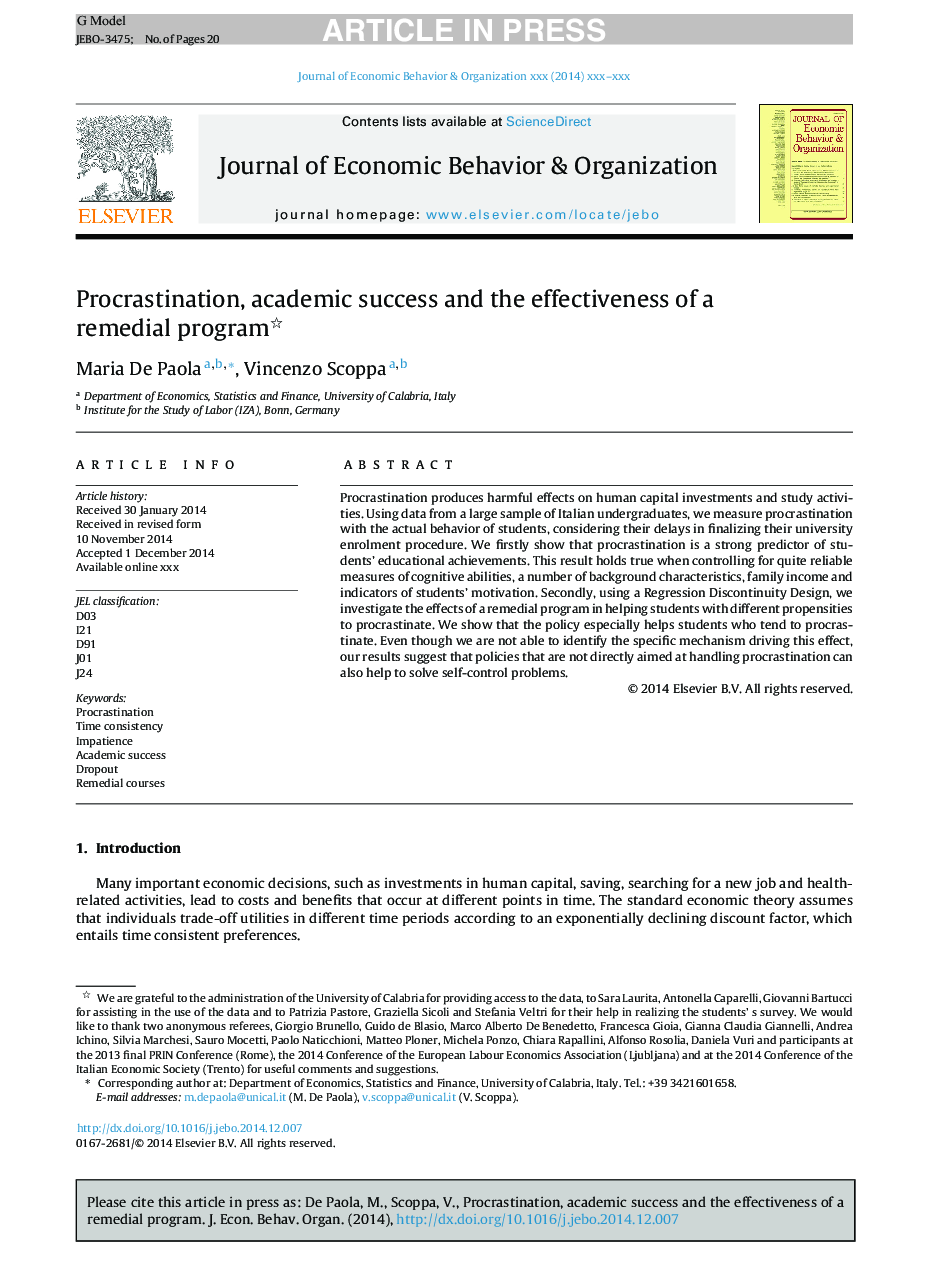| Article ID | Journal | Published Year | Pages | File Type |
|---|---|---|---|---|
| 7243205 | Journal of Economic Behavior & Organization | 2015 | 20 Pages |
Abstract
Procrastination produces harmful effects on human capital investments and study activities. Using data from a large sample of Italian undergraduates, we measure procrastination with the actual behavior of students, considering their delays in finalizing their university enrolment procedure. We firstly show that procrastination is a strong predictor of students' educational achievements. This result holds true when controlling for quite reliable measures of cognitive abilities, a number of background characteristics, family income and indicators of students' motivation. Secondly, using a Regression Discontinuity Design, we investigate the effects of a remedial program in helping students with different propensities to procrastinate. We show that the policy especially helps students who tend to procrastinate. Even though we are not able to identify the specific mechanism driving this effect, our results suggest that policies that are not directly aimed at handling procrastination can also help to solve self-control problems.
Related Topics
Social Sciences and Humanities
Economics, Econometrics and Finance
Economics and Econometrics
Authors
Maria De Paola, Vincenzo Scoppa,
